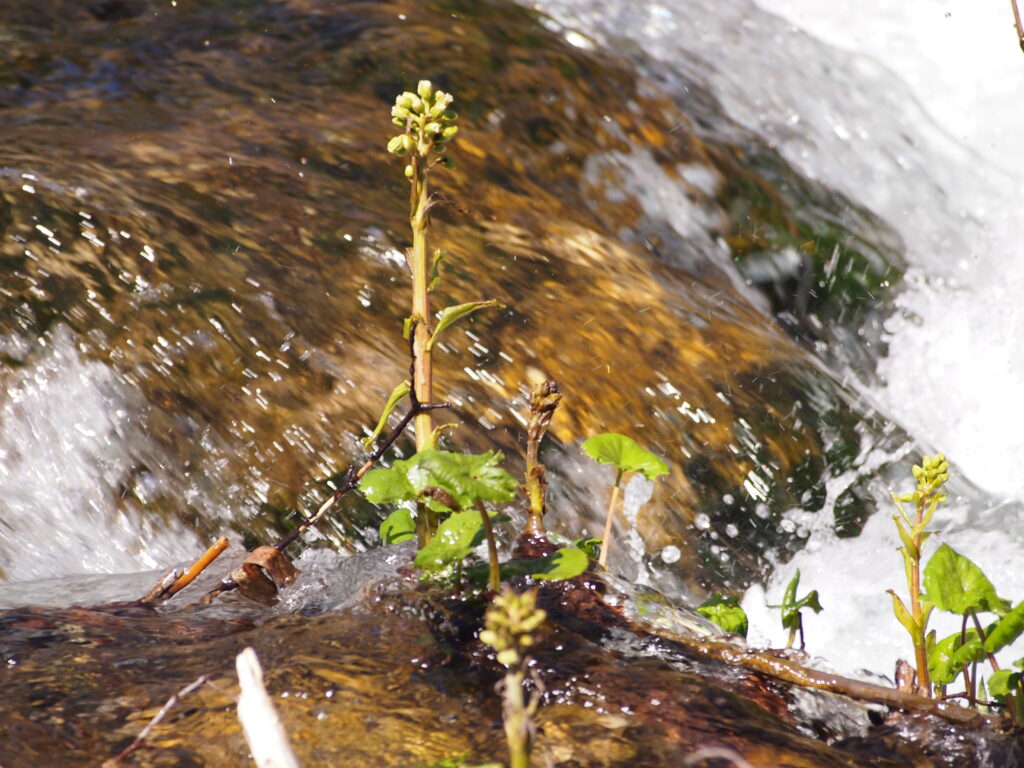The Plitvice Lakes National Park boasts a considerable diversity of plant species within the protected area, numbering more than 1400 species. These plant species grow in different habitats, for example in forests and on grassland, but there are also those that have settled at the edge of the lakes and on tufa barriers.
Descending into the Lower Lakes canyon from Entrance 1 and crossing the first tufa barrier of Lake Novakovića Brod, you will be able to notice the swamp sawgrass (Cladium mariscus), characterised by its long saw-edge leaves.
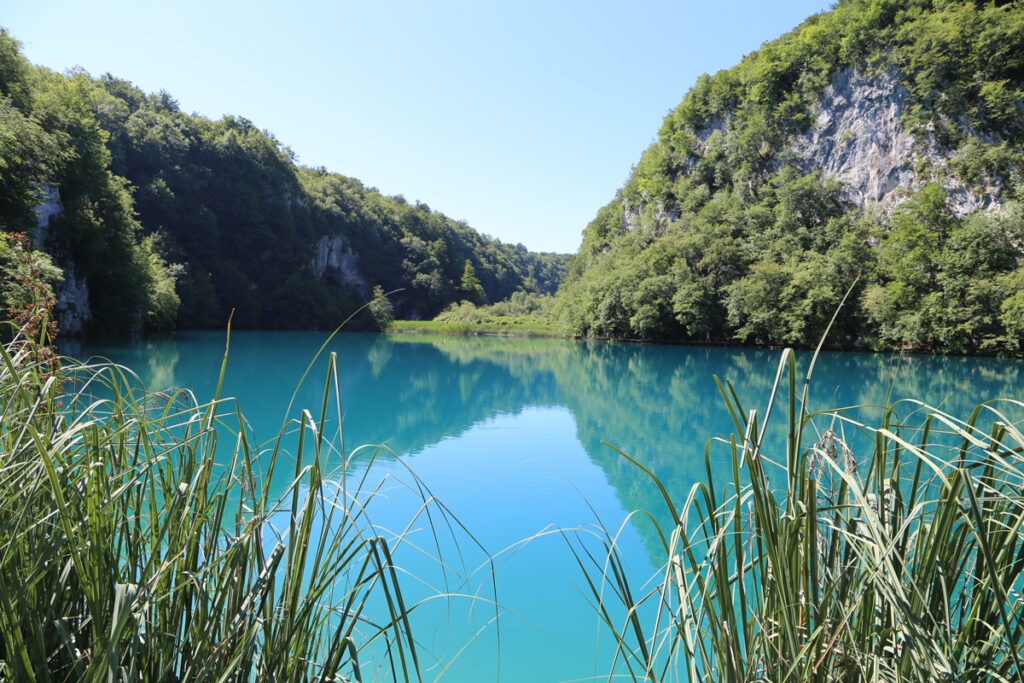
At this passage, but also along the edges of the other lakes, grows the common reed (Phragmites australis), whose stems can reach a height of over 2 metres.
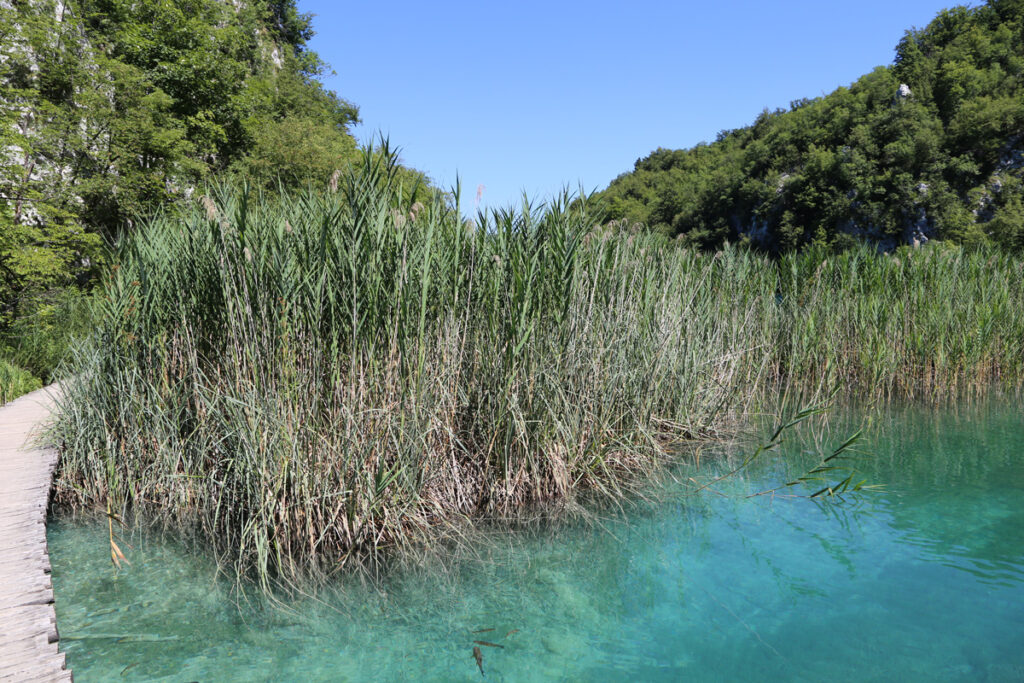
Tufa barriers provide a habitat for the plant Petasites kablikianus that flowers in early spring, after which it grows large round green leaves. This plant species is one of the dominant species of the tufa barriers and is a relict, which means that its distribution today bears witness of the Ice Age. This plant is often joined by the hemp-agrimony (Eupatorium cannabinum).
On the tufa barriers of the Lower Lakes canyon, you can see shrub tree species such as willow trees (Salix spp.), of which several different species can be found in the Plitvice Lakes, and elderberries (Sambucus nigra). These plant species are also characteristic of the Upper Lakes. At waterfalls, you can also see grass species such as the red top (Agrostis stolonifera) and the Calamagrostis varia. The red top, which grows on steep waterfalls and tufa barriers, resembles a beard.
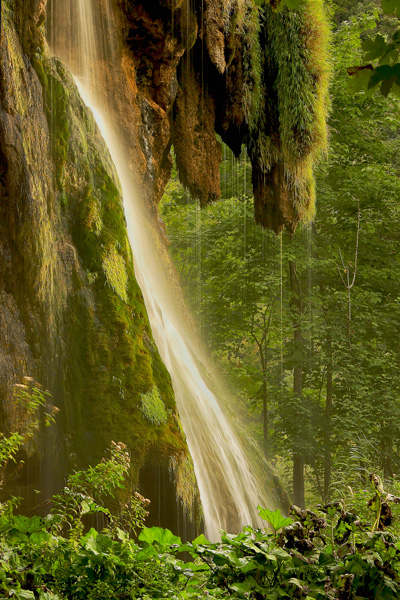
Crossing the bridges of Kozjak, at the place where the Upper Lakes end and the Lower Lakes begin, “meadows” of swamp sawgrass grow by the wooden bridge.
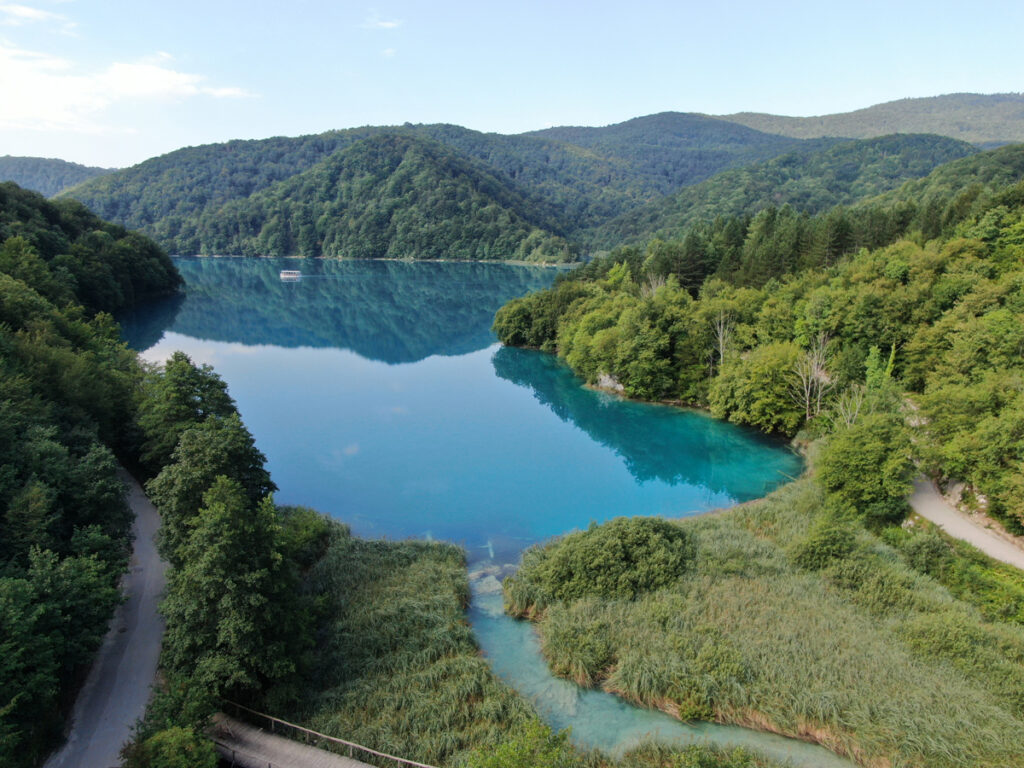
Forest vegetation spread above and around the tufa barriers includes tree species such as the sycamore (Acer pseudoplatanus), the common ash (Fraxinus excelsior), the black alder (Alnus glutinosa) and the common hornbeam (Carpinus betulus).
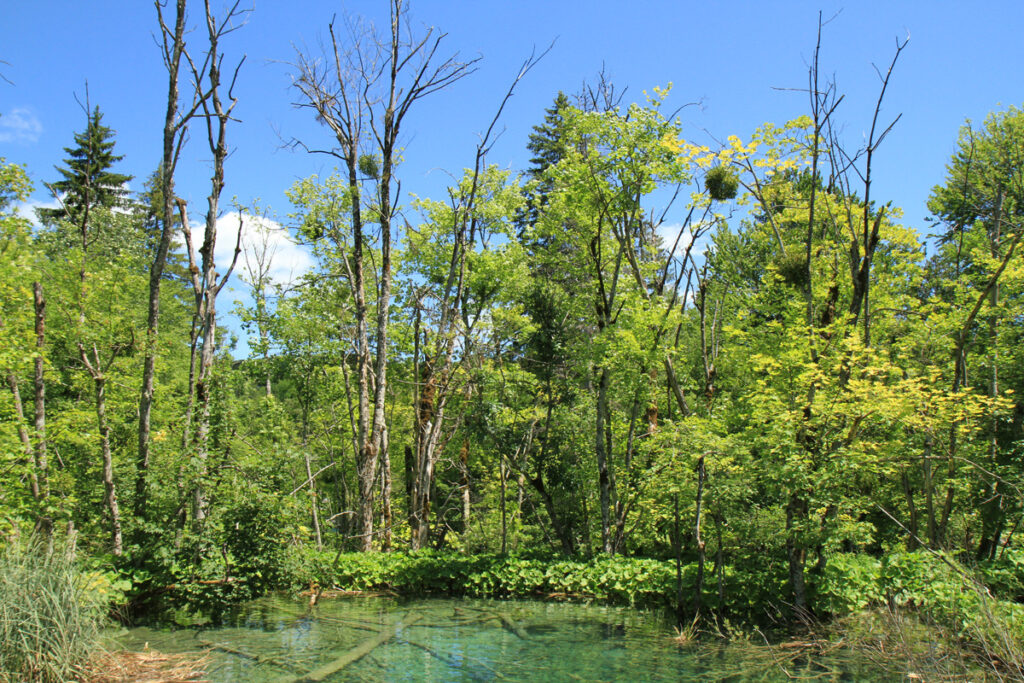
By the edge of Lake Prošćansko grows the bulrush (Typha spp.), but this plant species is scarce at the other lakes, and grows only individually.
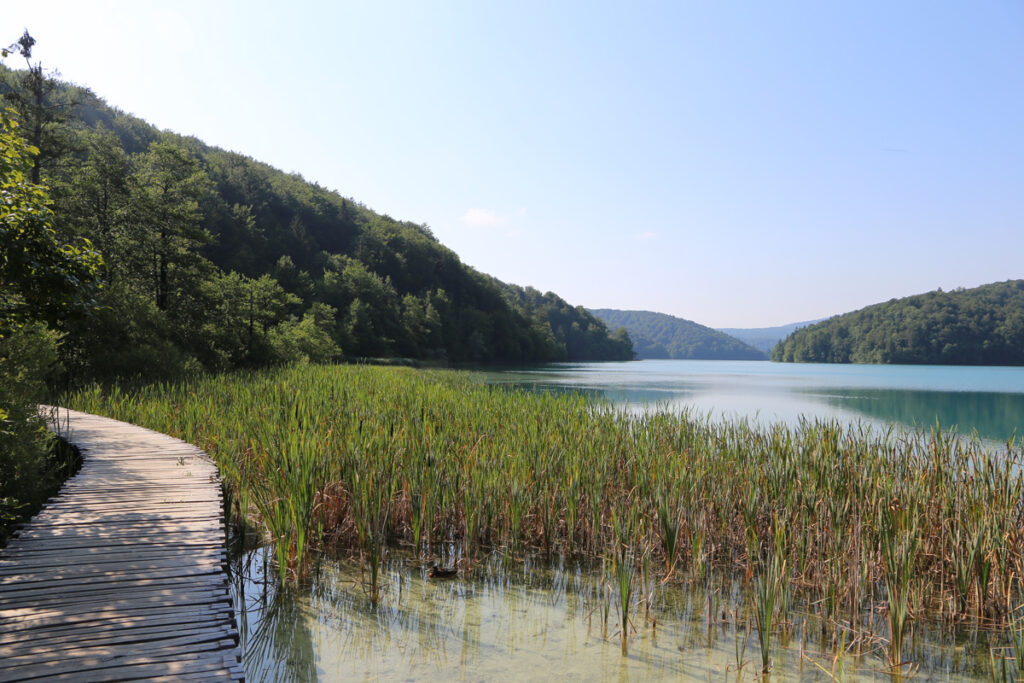
Read other interesting stories from the Plitvice Lakes National Park

